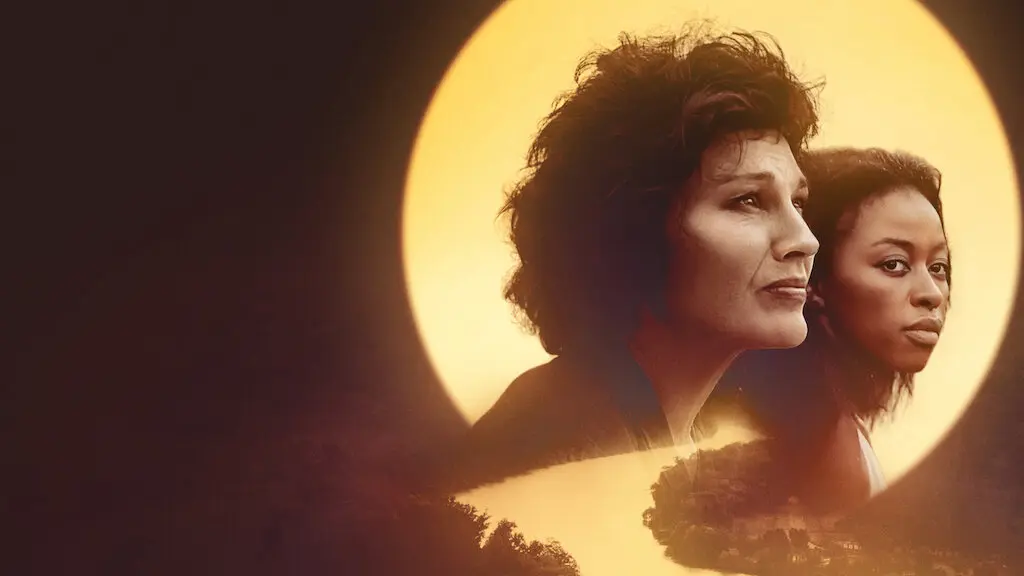Summary
There is much to appreciate about Jewel, especially how it deals with the white savior trope. However, the storytelling is too passive, and the romance is forced. There is a much better film inside desperately trying to come out.
The Netflix film Jewel is not simply hard to enjoy at times, as it becomes polarizing for much of the 85 minutes. The movie is aggressive on many levels and frustratingly inert at the same time. The script by Glenrose Ndlovu juggles themes of feminist ideals, colonialism, white guilt, and unwelcome Western influence, all while taking place within a community with an elephant’s memory.
The story follows Tyra (Michelle Botes), a photographer touring South Africa, shooting pictures for travel magazines. Specifically, the Sharpeville massacre that occurred on March 21st, 1960. Thousands of protestors, some say peaceful demonstrations, others say rocks had been thrown.
Either way, a rock or two is the excuse the police needed. This was the excuse for opening fire and sending tear gas into the crowd that day. In total, 69 people lost their lives, and 80 were injured, including 29 children. So, there is a deep history that haunts the township of Sharpeville.
As they tour the memorial, Tyra and a crowd of her group of primarily white vacationers and their male tour guide have visitors. They watch a dozen or so women dressed in all white praying. The man yells at them in Zulu. Go away is what he tells them. He comments that these crazy ones are interfering with his speech. They are praying in Sotho for the lost souls that day.
This is a gold mine for Tyra; two extraordinary things happen as she starts to take pictures. One, she sees a tall man approach through grey smoke. (If I had to guess, this would be the tear gas used on the protestors in 1960).
The other is a beautiful woman who prays for those ghosts they lost that day. A cleansing, as it was described later. She is dressed in crisp white from head to toe. Her name is Siya (Nqobile Khumalo), and Tyra cannot take her eyes off her.
The aging photographer is also entering a culture she knows nothing about. She left years ago. It is not clear where she ended up. However, this is the equivalent of a Westerner walking into a culture and imposing their own beliefs and ideals upon it.
For instance, in the scene where she pulls Siya onto the dance floor. Tyra ignores her concerns about dancing with another woman. She enjoys their night and dance anyway. When Siya’s boyfriend confronts the couple, Tyra will not back down. Botes shows a glimpse of rage, a wave of feminist anger that she will not let a man control her or Siya’s enjoyment.
What happens next is polarizing. Tyra is a white woman whose people came from South Africa, and her father was a police officer. Which means he may have had a hand in the massacre. She tracks Tyra down. After that point, she continuously appears at her door, stalking her.
Tyra does not know her address, and she violates personal boundaries by finding her at home. Tyra even begins to help butter up the grandmother by promising to take her granddaughter to Cape Town to be a model. The theme here is colonialism practices where women are now dependent on the men (or, in this scenario, a woman who had made her intentions clear), and adding the theme of a white savior complex should create deeper meanings.
And that’s where Jewel director Adze Ugah’s (Isibaya) film should shine. The conflict of Western liberal independent ideas versus hot-button issues of gender roles, and especially the sexual rights of African women, should create tension that sparks.
Unfortunately, the film begins to be too passive in its storytelling, relying on muddled metaphors and repetitive imagery that is stagnant. Even the dialogue is hard to listen to at times. For instance, when Tyra inquires Siya about her gogo, she unnaturally and insensitively asks, “How is your dying grandmother?”
There is a much better film inside Jewel. The themes and issues are never just black and white, even though the history of racial tensions has much to do with it. The problem is that those complex, deeply woven themes are on an equal level with a love story that feels forced and unnatural when distinct levels of intersectionality are at play here. My suspicion is that this was the studio pushing a more marketable storyline to enhance viewership.
Jewel has much to appreciate. The issue of diabetes is significant in South Africa, and the symbolism of river water brings a sense of spirituality. I even admired the particularly cold ending in dealing with the white savior trope.
However, the film would have worked better if Tyra had been a supporting character. Let us hope Ugah and the wonderful Nqobile Khumalo are given another opportunity, with greater control, to tell a story with the same unique lens with greater scope.




